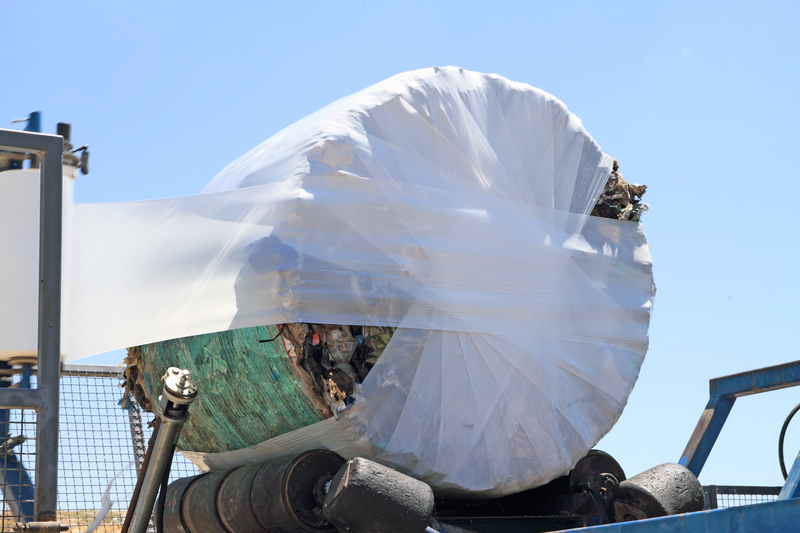Understanding the Ecological Consequences of Inefficient Waste Disposal
The environment we live in is an intricate system of interactions between natural elements and human activities. Among these activities, waste disposal plays a critical role in determining the health of our ecosystem. Inefficient waste disposal has proven to be a significant challenge, posing dire ramifications on our environment. This comprehensive article delves into the ecological consequences of improper waste management, shedding light on the urgency and necessity of adopting more sustainable practices.

The Problem with Inefficient Waste Disposal
Every day, billions of tons of waste are generated across the globe. From plastics and electronic waste to organic matter, the vast majority of this waste is not disposed of properly. The inefficient handling of waste not only impacts the immediate surroundings but also sets off a chain reaction of negative consequences that affect various elements in nature. Some of the main problems associated with inefficient waste management include:
- Land Pollution
- Water Contamination
- Air Pollution
- Harm to Wildlife and Marine Life
- Soil Degradation
Impact on Land: Pollution and Loss of Habitat
One of the most visible effects of inefficient waste disposal is land pollution. When waste is not managed effectively, it is often dumped indiscriminately, leaving large tracts of land unusable. Open landfills and unregulated dumping sites become hotbeds of contamination, releasing harmful chemicals into the soil. This not only degrades the soil quality but also leads to the loss of natural habitats:
Landfill Leaching and Soil Contamination
Most landfills lack proper lining mechanisms to prevent leachate, a toxic liquid formed by the decomposition of organic waste, from seeping into the soil. This leachate contains numerous contaminants, from heavy metals to organic pollutants, which can infiltrate groundwater systems, significantly impacting both flora and fauna.
Loss of Biodiversity
Landfills encroach upon natural habitats and disrupt local ecosystems. Many plant and animal species lose their homes, leading to a decline in biodiversity. The loss of species can disrupt ecological balances and reduce the resilience of ecosystems to environmental changes.
Water Contamination: Dirty Wastes, Dirty Waters
Inefficient waste disposal is a major contributor to water pollution. Both surface and groundwater sources fall victim to contaminants from improper waste management practices, leading to severe ecological repercussions:
Marine Life Endangerment
Oceans and waterways are especially vulnerable to the hazards of waste mismanagement. Plastics and microplastics are notorious for infiltrating aquatic environments, where they pose a deadly threat to marine life. Animals often mistake plastic waste for food, resulting in entanglement, ingestion, and eventually death.
Groundwater Pollution
Improperly disposed waste, especially hazardous waste, can penetrate into groundwater reserves. Contaminated groundwater not only affects ecosystems reliant on clean water but also poses health risks to humans who might depend on these waters for drinking and irrigation.
Air Pollution: The Unwanted Byproduct of Waste Mismanagement
The ecological consequences of inefficient waste disposal extend to the quality of the air we breathe. Open burning of waste releases a cocktail of harmful pollutants into the atmosphere:
Aerosols and Particulate Matter
The open combustion of waste emits significant amounts of aerosols and particulate matter. These tiny particles can penetrate deep into human lungs, leading to severe respiratory problems. Similarly, animals are also affected, leading to decreased populations in some species.
Greenhouse Gas Emissions
Decomposing waste in landfills produces methane, a potent greenhouse gas that contributes to climate change. Methane is over 25 times more effective than carbon dioxide in trapping heat in the atmosphere, amplifying the effects of global warming.
The Impact on Wildlife: A Growing Threat
Wildlife bears a significant share of the burden from inefficient waste disposal. Numerous species are directly affected, altering the delicate balance of ecosystems:
Entanglement and Ingestion
Animals can become entangled in waste materials like fishing lines, plastic bags, and other pollutants. Ingesting plastics can lead to malnutrition, internal injuries, and death.
Toxic Exposure
Wildlife is also at risk from toxic exposure due to pollutants leaching from waste. Chemicals such as PCBs (polychlorinated biphenyls) and heavy metals can accumulate in animal tissues, leading to health issues and affecting reproduction rates.

Soil Degradation: Undermining the Foundation of Life
Soil is a fundamental component of our ecosystem, underpinning agricultural productivity and natural vegetation. The ecological implications of inefficient waste disposal significantly undermine soil integrity:
Loss of Soil Fertility
Contaminants from waste disrupt the natural soil composition, leading to reduced fertility. This results in poorer crop yields and affects food security.
Soil Erosion
Piled up waste can disrupt soil stability, making it more susceptible to erosion. This, in turn, leads to the loss of topsoil, which is critical for plant growth and natural vegetation development.
Conclusion: A Call for Sustainable Waste Management Solutions
It is clear that the ecological consequences of inefficient waste disposal are vast and varied, affecting every aspect of our environment. To combat these negative impacts, it is imperative that governments, businesses, and individuals alike rally towards implementing sustainable waste management solutions.
- Waste Reduction and Recycling: Encouraging the reduction of waste at the source and promoting recycling can significantly decrease the burden on waste management systems.
- Implementation of Advanced Waste Processing Technologies: Technologies like waste-to-energy plants and advanced sorting facilities help in minimizing the volume of waste that ends up in landfills.
- Public Awareness and Education: Empowering communities with knowledge about the implications of improper waste disposal and how they can contribute to sustainable practices.
By recognizing and addressing the ecological consequences of inefficient waste disposal, we can move towards a healthier and more sustainable future for our planet.